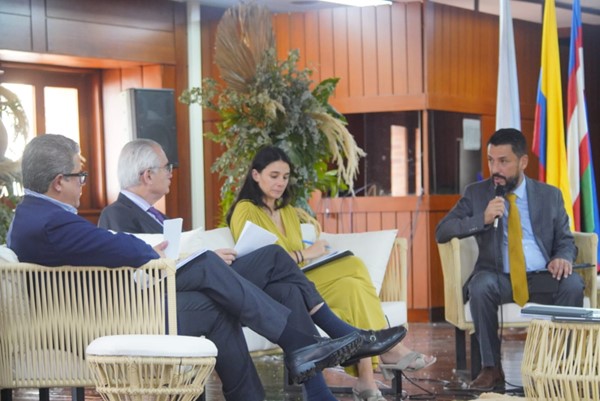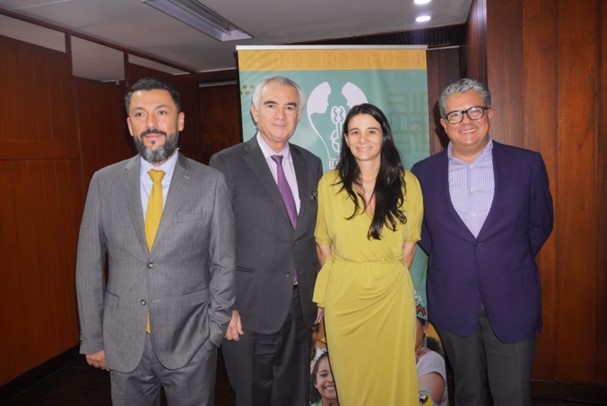The Knowledge Legacy Corporation, the CAF-Development Bank of Latin America and the Caribbean, the WWF conservation organization and IICA organized a panel discussion entitled “Rethinking the Financing of the Bioeconomy.” Panel members stressed the importance of protecting and valuing natural capital, and discussed the role of the bioeconomy as a regional development model.

Cali, Colombia, 31 October 2024 (IICA). During the United Nations Biodiversity Conference (COP 16), which is taking place in Cali, Colombia, and whose theme is “Peace with Nature,” specialists from different organizations highlighted the bioeconomy’s role as a driver of sustainable development and climate change mitigation.
The Knowledge Legacy Corporation, the CAF-Development Bank of Latin America and the Caribbean, the WWF conservation organization and the Inter-American Institute for Cooperation on Agriculture (IICA) held a panel discussion entitled “Rethinking the Financing of the Bioeconomy.”
Hugo Chavarría, Manager of Innovation and Bioeconomy at IICA, moderated the activity, during which the experts taking part underlined the importance of protecting and valuing natural capital, and discussed the role of the bioeconomy as a regional development model.
The panel members were José Manuel Salazar, Executive Secretary of ECLAC; Germán Arce, President of Asofiduciarias; and Tatiana Escovar Fadul, Representative for the Andean Region of the Global Green Growth Institute (GGGI). The panelists shared their knowledge and experiences with regard to the bioeconomy and its contribution to sustainable development.
José Manuel Salazar stressed the need to “rethink the bioeconomy” in light of the challenges that the region faces in achieving growth, noting that while Latin America is highly competitive in this field, strategic investments are needed if it is to realize its potential.
“We have to think about how to transform our economies, and when we consider ways of achieving that, we think about sectors such as those driving modern, Internet-based services exports, medical equipment, the care economy, and a long list that includes the bioeconomy. Understanding what that means is the second challenge. The first is to put it in the context of the low-growth trap, to understand that the bioeconomy is something in which Latin America is extremely competitive, but that investments must be made because it will not grow spontaneously,” he said.

Hugo Chavarría stressed the importance of coordination between national and international actors, as well as private banks, to finance bioeconomy projects. Chavarría suggested some key strategies for attracting investment, such as the appropriate use of financial language, clear proposals, and evidence of projects’ economic, social and environmental impacts. “Firstly, we have to speak their language. Secondly, we must be able to show them the economic, social and environmental impacts of our bioeconomy projects.”
The event highlighted the importance of the bioeconomy as a key opportunity for boosting sustainable development and mitigating climate change in Latin America. The speakers emphasized that cooperation between public, private and international actors, as well as a strategic vision of investment, are essential elements for implementing successful bioeconomy projects. They also pointed up the need to rethink approaches and coordinate efforts to realize the potential of the Latin American and Caribbean region.
More information:
Institutional Communication Division.
comunicacion.institucional@iica.int











